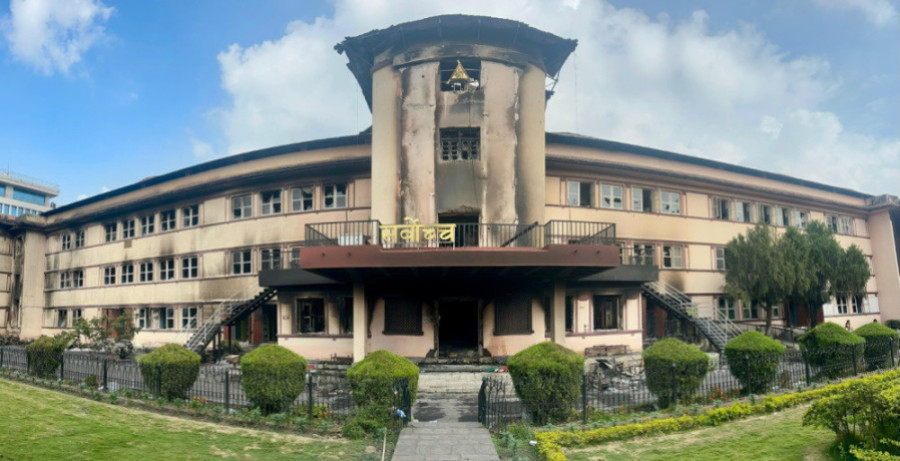National
Top court refuses interim order against Karki government, House dissolution
Gives Prime Minister Karki and President seven days to clarify their decisions in writing.
Binod Ghimire
The Supreme Court has refused to issue an interim order against the formation of the interim government and the dissolution of the House of Representatives.
Conducting a joint preliminary hearing on Wednesday on over a dozen writ petitions challenging the formation of the Sushila Karki government and the subsequent dissolution of the lower house, the court said it would come to a decision after the final hearing. The court has received a total of 16 petitions.
“Since the matter demands to be examined during the final hearing of the writ petitions, it is not necessary to issue an interim order at this stage,” reads a brief order issued by the bench. To hear the matter, Chief Justice Prakash Man Singh Raut has constituted a five-member bench, which he himself leads and includes other top four justices.
Despite refusing to issue the interim order, the bench, however, asked the Office of the President and the Office of the Prime Minister and Council of Ministers to furnish their clarifications in writing for forming the government under former chief justice Karki and dissolving the House. They have been given seven days to present their clarifications through the Office of the Attorney General. Against the general practice of giving 15 days, the court reduced it to half as per the petitioners’ demand and considering the urgency of the matter.
The petitioners had also sought an order to stop the government from making decisions that could have long-term or constitutional impact.
The Gen Z-led anti-corruption movement of September 8 and 9 ousted the KP Sharma Oli government. President Ramchandra Paudel, on the recommendation of the movement’s representatives, appointed Karki as prime minister of the interim government on September 12. He also dissolved the House of Representatives, a key demand of the agitators, on Karki’s recommendation, giving her six months to conduct parliamentary elections.
Once the top court whose building was destroyed in the arson during the protest last month resumed service in the second week of October, 16 petitions were lodged against the moves of Paudel and Karki.
The petitioners have cited three Articles of the Constitution of Nepal to challenge Karki’s appointment and have presented the court’s precedents in seeking reinstatement of the lower house. They claim the appointment of Karki as prime minister is a direct breach of Articles 132 and 76.
Chief justice and justice of the Supreme Court cannot be engaged in any other office than the National Human Rights Commission as per Article 132. It further says that no person who has once held the office of chief justice or justice of the Supreme Court shall be eligible for appointment to any government office.
Likewise, Article 76 sets three conditions to be a prime minister, with a clear provision that one needs to be a member of the lower house. They also have claimed that Paudel acted against Article 61 of the constitution which says the main duty of the President is to abide by and protect the constitution.
As per the petitions, the dissolution not just contradicts the constitution but also stands against the top court’s precedents. The court had reinstated the House of Representatives twice after it was dissolved by the then Oli-led government in 2020 and 2021. It had ruled that the constitution envisions a full five-year term for the lower house.
Defending their petitions, the lawyers had tried to argue how the constitutional provisions and the top court’s precedents were violated to form the interim government and dissolve the House. Presenting his arguments, senior advocate Khamma Bahadur Khati, who also is a former attorney general, said the President has cited his discretionary power for government formation, which he does not actually possess.
“Why did the President form an interim government under the leadership of a former Chief Justice without even trying to form an alternative government [after Oli’s resignation],” he said. “This government does not have the authority to dissolve Parliament. A government that doesn’t stand on any constitutional ground cannot dissolve the House.”
Also presenting his argument, senior advocate Tikaram Bhattarai said the President has not cited any Article for dissolving the House. “The decision to dissolve the House, therefore, is unconstitutional prima facie,” he said.
The final hearing on the petitions will begin after the court gets written clarifications from the defendants.




 18.12°C Kathmandu
18.12°C Kathmandu














